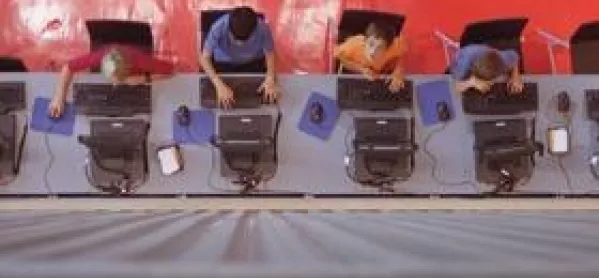Computing camp helps students crack code

Parents used to nag their children to stop wasting their summer holidays in front of the computer screen - but now they are queuing up to demand that they have more screen time.
One of the first coding camps for school students in Europe will open this summer, as ever-increasing numbers of young people are keen to learn programming, coding and how to develop apps.
The four-week Fire Tech Camp, which will be held at Imperial College London - a university renowned for its science and technology teaching - has already attracted interest from parents in Denmark, Iceland and the Middle East.
Jill Hodges, Fire Tech’s founder, who is originally from the US, said the idea came after she sent her children to a coding camp in her home country. In the US, 20,000 students attend coding camps every summer as increasing numbers of parents recognise the importance of subjects such as computer science, and being able to read and write code.
“My children loved it at tech camp, but when we looked into doing something similar back here there was nothing. So I decided to set something up myself,” Ms Hodges said.
She ran a small, week-long camp over Easter, which sold out almost immediately, and said that most of the places have been filled for the summer camp without any marketing.
The former equity analyst believes the camp has proved so popular because parents are aware that computing skills will be essential in the future and know that schools are not instructing their children in the basics.
“Parents realise that their children are not getting taught this in their schools,” Ms Hodges said. “What they get is ICT (information and communications technology), where they are taught how to use Word, PowerPoint and Excel.
”(Learning to code) will be bigger and more important than learning Mandarin. It’s not so they can become computer programmers, it will be because they will need to have this computer literacy in whatever job they do.”
The move to open the camp has been welcomed by leaders in education technology. Miles Berry, senior lecturer in computing education at the University of Roehampton in London and chair of UK ICT subject association Naace, said that school holidays are the perfect time to deliver education in a more informal setting.
The long summer break, in particular, should be seen as a “time for learning rather than an interruption to it”, he said.
“Like summer orchestras and sports coaching, (coding camps) offer a good chance for enthusiastic young programmers to tackle more extended projects for the fun of it, with others who share their enthusiasm, without worrying too much about exams and assessment,” Mr Berry added.
Governments on both sides of the Atlantic have taken steps to boost the take-up of computing and programming among younger students. Last year, England’s education secretary Michael Gove scrapped the ICT curriculum and introduced computer science.
And last month, US President Barack Obama set out his budget proposals, which called for an increase in funding for science, technology, engineering and mathematics (STEM) subjects, in a bid to boost the number of engineers, particularly in the technology sector.
“If you don’t have basic digital literacy then you have no idea what is happening behind the screen; all you know is someone has coded it to be clear for you to understand,” Ms Hodges said. “Once you understand it you realise what is complicated and what is not, and that can be used in any job.”
Going to the source
The Fire Tech Camp will cater primarily for nine to 14-year-olds and offer the students five-day courses in video game design, app development and robotics.
Rather than learning to read and write coding language, they will be taught the basics of computing - for example, computational logic and skills such as storyboarding.
Courses on how to code will also be available for 15- and 16-year-olds.
Photo credit: Getty
Original headline: Computing camp hopes to help students crack the code
Keep reading for just £1 per month
You've reached your limit of free articles this month. Subscribe for £1 per month for three months and get:
- Unlimited access to all Tes magazine content
- Exclusive subscriber-only stories
- Award-winning email newsletters



